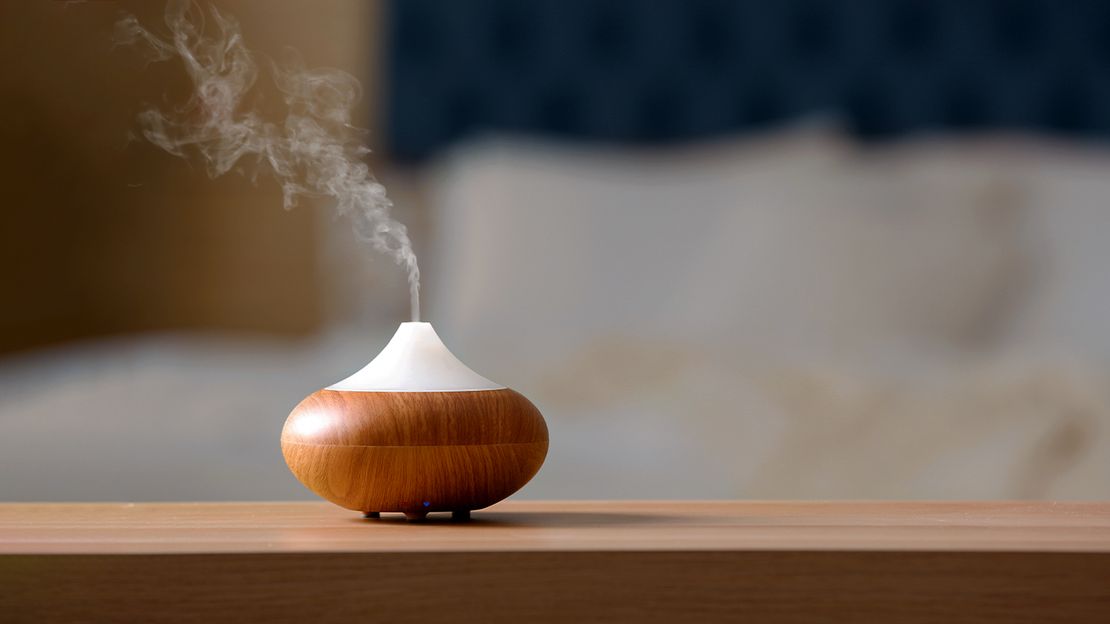Learn about brain health and nootropics to boost brain function
Bedtime Aromatherapy May Boost Memory and Protect the Mind

Turning on an essential oil diffuser before bed could dramatically improve your memory. Breathing in pleasant scents during sleep may offer an effective, low-effort way to improve brain health and potentially help deter dementia.
In a small experiment involving 23 older adults aged 60 to 85 without memory impairment, neuroscientists found that inhaling odorants while asleep seemed to dramatically enhance a person’s memory over the course of six months.
“When people are given olfactory [relating to sense of smell] enrichment, their memory areas become larger and more functional,” says study author Michael Leon, PhD , a professor of neurobiology and behavior at the University of California, Irvine. “Conversely, when olfaction is compromised, the memory centers of the brain start to deteriorate.” Essential Oils Used in a Diffuser for First Two Hours of Sleep
For the project, participants were divided into two groups. Those in the olfactory enrichment group were provided with an odorant diffuser and seven essential oil odorants (rose, orange, eucalyptus, lemon, peppermint, rosemary, and lavender ).
RELATED: Essential Oil Dos and Dont’s — Aromatherapy Tips for Beginners
They were asked to turn on the diffuser when they went to bed, and the scent was released into the air during the night for two hours when they first went to sleep. The participants rotated through the different odorants each night.
In the control group, individuals were also provided with an odorant diffuser and followed the same routine. Rather than essential oils, though, they were provided with bottles that contained distilled water with an undetectable trace amount of odorant added. Bedtime Aromatherapy Resulted in Dramatic Improvement in Cognitive Testing
At study start and end, participants completed a word-list test commonly used to evaluate verbal learning and memory. After six months, those receiving the aroma treatment had a 226 percent increase in cognitive capacity compared to the control group, according to findings recently published in the journal Frontiers in Neuroscience .
“We found that, compared to controls, ‘enriched’ participants improved in their performance on word-list recall, a key test of verbal learning and memory,” wrote the study authors.
The following changes occurred after six months, according to the authors: Of a dozen participants in the aromatherapy group, 6 of 12 improved their recall, compared to only 3 of 11 in the control group.
Only 1 of 12 had worse cognitive performance in the aromatherapy group, while 7 of 11 did worse in the control group.
A total of 5 of 12 stayed the same recall-wise in the aromatherapy group, while 1 of 11 stayed the same in the control group.
The study began with 132 total randomized participants, but Leon says that there was a high dropout rate due to disruptions from the pandemic. Smell and Memory Have Long Been Linked
While this investigation was small in size, the results align with other scientific findings demonstrating a connection between smell and cognition, says Jay Gottfried, MD , a professor of neurology and psychology at the University of Pennsylvania in Philadelphia, whose research focuses on sense of smell and its effects on the brain.
“Our own published work , as well as that of many other labs , has shown that smell can have a robust and targeted effect on post-sleep memory,” says Dr. Gottfried, who was not involved in the study.
THE LAST WORD: Are Scented Candles Harmful to Your Health?
He adds that because the findings were based on so few participants, it “markedly limits confidence in what can be learned here.”
Dr. Leon suggests that the improvement in cognition may be related to the fact that the same brain areas that process emotions, learning, and memory also process odors.
“The olfactory system is the only sense that has a direct ‘superhighway’ input to the memory centers areas of the brain,” says Leon. All the other senses first pass information through the thalamus , an egg-shaped structure in the middle of the brain, before relaying information to your brain’s cerebral cortex for interpretation. Imaging Confirms Brain Benefits of Aromatherapy
Leon and colleagues also conducted brain imaging that revealed better integrity in the brain pathway called the left uncinate fasciculus in those who used aromatherapy. This pathway, which connects the memory-essential medial temporal lobe to the decision-making prefrontal cortex, becomes less robust with age.
Although quality of sleep did not appear to differ significantly between the aroma group and the controls, the Sleep Foundation has indicated that breathing in aromas during sleep may contribute to better rest, which is essential for the formation and storage of long-term memories .
Michael Yassa, PhD , a study co-author and professor in the neurobiology of learning and memory at the University of California, Irvine, suggested that more investigation might be directed at therapies that maintain the sense of smell.
“Everyone has experienced how powerful aromas are in evoking recollections, even from very long ago,” he said in a statement . “However, unlike with vision changes that we treat with glasses and hearing aids for hearing impairment, there has been no intervention for the loss of smell.”
Study authors say they hope the findings will lead to more research into olfactory treatments for memory impairment, and they intend to next examine the impact of inhaling aromas during sleep on people with diagnosed cognitive loss.
Read more at www.everydayhealth.com